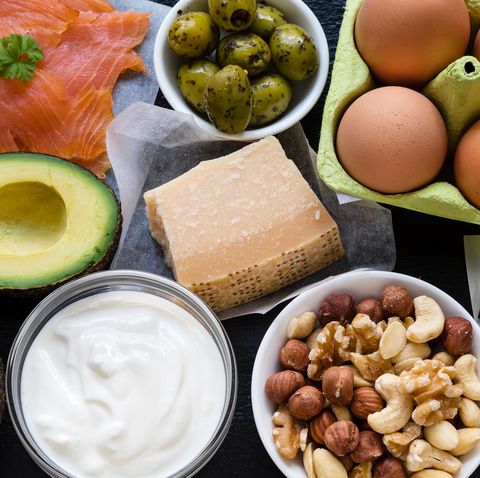Low Carb Vs Low Fat Diet - Which Is Right For You?

Are you trying to choose a low-carb or low-fat diet? Which is right for you?
The food industry looks like a pendulum that swings back and forth. A decade ago, everything we heard about was low-fat, low-fat, low-fat. Fats makes you fat!
At the moment it seems that we are starting to hear about Low Carb, Low Carb, Low Carb. Carbohydrates make you fat!
What? It can be very confusing for you as a weight watcher. So which one works?
All in all, fortunately, both diets work - but it depends on YOU!
Truly, you are an integral factor. Before we get there, however, we need to review and characterize what I mean by a low-carb diet compared to a low-fat diet.
Three types of vitality/fuel units make up your food routine: protein, fat, and carbohydrates (there are micronutrients and nutrients, minerals, etc.). However, we do not go into details for this article).
On a low-carb diet, you reduce the carbohydrate percentage and increase the protein or fat percentage - or both, by relying on the type of low-carbohydrate diet that you follow.
Most low carbohydrates mostly eat less. Try to keep your daily carbohydrates at 30 grams a day. The idea behind the diet is: carbohydrates require your body to release insulin. Insulin monitors your glucose. On the other hand, it is a fat-storage hormone that signals your body to store fat.
So if you eat so many carbohydrates, your body goes into fat storage mode and you store the extra carbohydrates as fat due to the hormone insulin.
A low-carbohydrate diet also allows your body to consume fat for vitality rather than carbohydrates (a process called ketosis). So if you consume fat for vitality, you are going to lose fat faster.
Currently for the low-fat diet. With the proportion model, a low-fat diet lowers your fat calorie percentage and increases your level of carbohydrates or protein - usually both.
The idea behind this eating routine is that fat contains 9 calories per gram, while carbohydrates contain about 4 calories per gram. So, if you decrease your fat, you will normally decrease your calories and lose pounds.
Another thought behind this is that our body doesn't have to do much to process the fat we eat. It is therefore effectively placed in our fat reserves. In any case, protein and carbohydrates gain vitality to be processed and processed - so fewer of these calories are excreted than fat.
There is a lot more information on these two diets than we could treat, but this is a general overview.
We should be discussing it with you at the moment. They are interesting and your body works in its way, with exceptional needs.
So it will tell you which diet is ideal. How? With results and vitality. For example, you will likely be a little tired in the first few days of a diet. In any case, if you're still exhausted after seven days - that's not a decent sign.
Another way your body communicates with you is through weight loss. For example, if you are no longer fit after seven days of eating (especially during the main week) and stick to it reliably, this is a sign that the diet is not right for you.
I'll give you a model. I've tried low-carb and low-fat diets.
For a while, I was convinced that low carbohydrates were the best approach. I also lost the load of a low carb plan. In any case, I inevitably saw that I felt terrible with a low-carb program. I had no vitality and was depressed. I felt insensitive and wouldn't do anything!
However, when I started adding carbohydrates to my diet (and eliminating excess), I lost weight and felt increasingly vital and happy. I didn't go overboard with the carbohydrates right now, but I've expanded them and I've seen a great contrast.
So my body needed more carbohydrates than the 30 to 40 grams I gave every day.
Another thing I saw was that I felt very exhausted as I ate more and more fat (from the low carb diet). This showed me that my body was not so good at processing fat - while another person could approve of this amount of fat in their diet and not feel tired.
So you have to find out what works for your body. I would recommend that you try both types of diets for seven days if not a month - and see what happens. Your body gives you information about what it likes and what it doesn't care about. And then you've discovered the best weight loss plan for yourself!